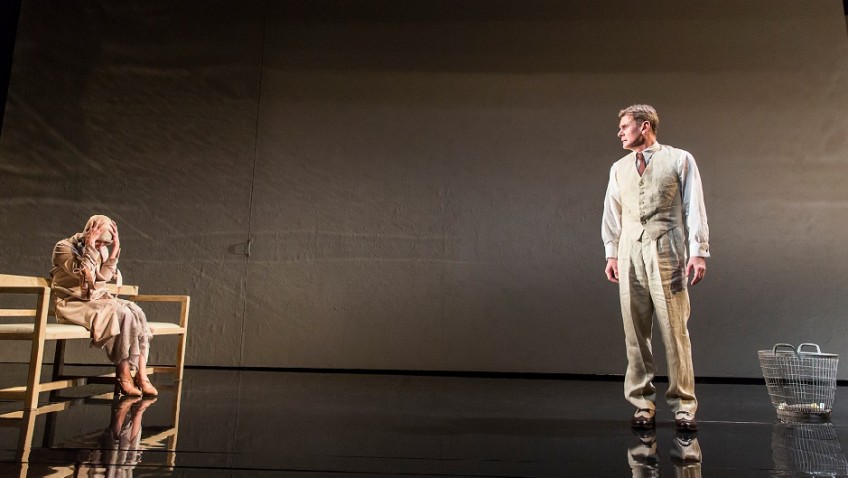Robert Tanitch reviews Waste at National Theatre/Lyttelton.
Harley Granville Barker’s political drama, originally written in 1907 when he was barely 30 and banned by The Lord Chamberlain, was not publicly performed until 1937.
The censor’s ostensible objection was to the overt references to abortion; but, undoubtedly, the real reason was the play’s scathing indictment of the governing classes in their greed, heartlessness, hypocrisy and jiggery-pokery.
Henry Trebell, an idealist and a man of ideas, is invited by the Tories to introduce a bill to disestablish the Church of England and divert the surplus funds to colleges.
A potentially brilliant career is ruined when a married woman, separated from her husband, dies giving birth to the child he fathered on a one-night stand.
The scandal proves useful to destroy both the man and the policies he advocates. A man of ideas, as Barker cynically points out, is an embarrassment to Parliament.
Trebell is a man whose heart is in politics to the exclusion of all else and he doesn’t come out of the story well, showing neither love nor pity for the woman he has used and degraded.
As acted by Charles Edwards Trebell is not the ruthless cold-blooded egoist he has been portrayed in the past. Similarly, the one-night stand, as acted by Olivia Williams is not the cheap trollop everybody says she is. Both characters are much more sympathetic and appealing than they usually are.
 Roger Michell’s production is an amalgam of the two versions of the play Barker wrote and ideally needs an intimacy that the Lyttelton stage cannot provide. But fortunately the main debate is in the expert hands of Michael Elwyn, Gerrard McArthur and Louis Hilyer.
Roger Michell’s production is an amalgam of the two versions of the play Barker wrote and ideally needs an intimacy that the Lyttelton stage cannot provide. But fortunately the main debate is in the expert hands of Michael Elwyn, Gerrard McArthur and Louis Hilyer.
You have to be prepared to listen, of course; and in the same way that you would have to listen when attending a play by Bernard Shaw, a playwright whom Barker championed and made fashionable when he ran the Royal Court.
Sylvestra Le Touzel’s performance as Trebell’s sister gives the final scenes invaluable emotional support.
Waste is theatrically and intellectually satisfying. 2 hours 50 minutes with a 20-minute interval pass far quicker than you may imagine.
To learn more about Robert Tanitch and his reviews, click here to go to his website





